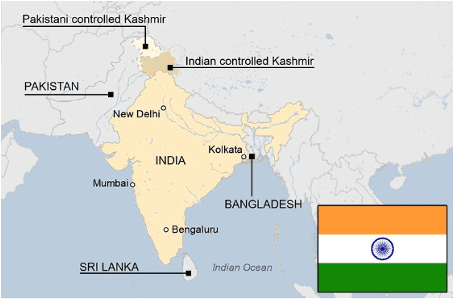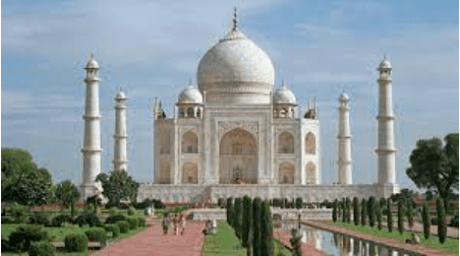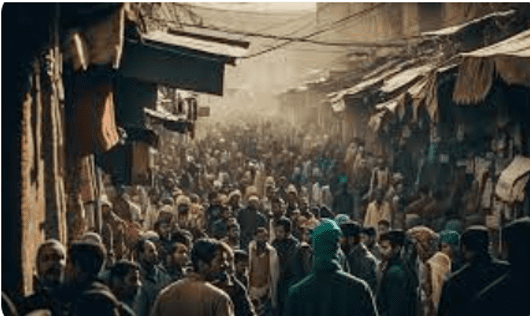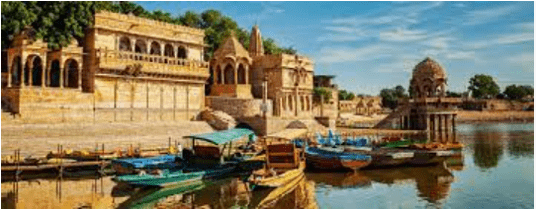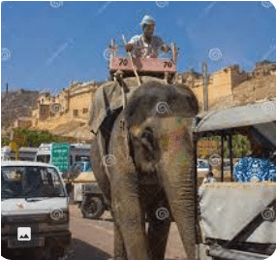PRAYERS FOR India
- Pray that the government will choose to build on the progress of recent decades, especially to preserve and protect human dignity, rights, and freedoms.
- Pray for Christians to remove all caste discrimination from the Church, where it sadly does exist. The Dalit Freedom Network educates Christians about issues related to Dalit rights and freedoms.
- Amidst all the suffering in India, it is women and children who suffer the most. Pray for state programmes and loving Christian ministries to address these desperate needs.
- Pray that God will change attitudes and practices in society to reflect His care for women and children. Of the 400 million children, possibly up to 35 million are orphans. 11 million are abandoned (90% are girls). 3 million live on the streets. Some families sell children into slavery to pay off family debts. Two-thirds of all children suffer physical abuse, and half suffer some kind of sexual harassment or abuse. Over 1 million end up in prostitution (mostly Nepalis and Bangladeshis). Society prefers male children, so some families abort, abandon, or even kill girl babies. The female population today lacks 35 million girls when compared with the male population. Women have lower rates of literacy and education, and domestic abuse is a widespread problem. Some young girls get dedicated to the ancient service of temple prostitution.
- Millions of followers of Jesus (Yesu Bhaktas) are secret believers, or unbaptized Christians outside the established denominations. Pray for discipleship for these people as their numbers increase.
- Some Christian groups today have remarkable growth, while other groups decline in numbers. Persecution of Christians has been steadily intensifying in recent years, and shows no signs of abating. Pray for our brothers and sisters in India to endure in the midst of this increasing pressure.
- Training for Christian workers is an urgent need. The life and health of the Church depend on pastors, teachers, evangelists, and missionaries. Many new believers come to faith through large rallies, healings, or miracles, but have few opportunities for Christian discipleship. Most leaders and pastors received very little preparation for their work. Pray for the formal training institutions. India now has over 100 degree-level seminaries! Many are evangelical. Bible schools number over 1,000. Many teach practical skills (such as church planting) in addition to theology. Training centres for indigenous workers (to train church planters) now also play a significant role. But much more is needed. Pray for creative, effective models to reach the country’s pastors and leaders with Bible teaching. All Christians need training to be effective ambassadors for Christ in their society. The Indian Church must learn to have greater impact in the workplace and in national life. Currently most Indians associate Christianity with the deprived and lower classes of society (80% of Indian Christians come from Dalit or tribal communities). The gospel has not yet made a significant impact on business, politics, arts, or culture.
- Pray for the North India Ganges plains, or the states through which the Ganges flows (Himachal Pradesh, Uttarakhand, Uttar Pradesh, Bihar, and West Bengal). Together they account for close to 500 million people. None of these states is more than 1% Christian. However, the Church now grows here more than ever, with some megachurches and several networks of house churches. Some Christians had a vision for 1 million churches planted in the north by 2020. Although short of 1 million, the many thousands of new fellowships started are an indication of increasing fruit in areas previously regarded as immensely difficult for church planting.
- Pray for the great cities, where the very rich live close to the very poor. Millions come from rural areas to cities every year, and most end up in slums. Mumbai and Hyderabad have significant Christian populations, while Kolkata, Delhi, Varanasi, and Lucknow have little Christian witness.
- Pray for the middle classes (between 400-500 million people). Half the cross-cultural missionaries worked among tribal groups, and many of the rest among the neediest sections of the population. Few today work among the urban middle class and the higher castes. This needs to change, but most workers feel unprepared for such challenges.
- Pray for the states of Andhra Pradesh & Telangana: Many Indian mission agencies work in these states, and many people come to Christ! Every district now has churches. But 16 people groups remain unreached and unengaged. Millions of Hindus come to Andhra Pradesh every year to worship at Tirupathi. 200 Christian organizations have bases in Hyderabad (the state capital), a key centre for Christian ministry. 40% of Hyderabad are Muslim, and it is also a key centre for Islam in South India. Very little is done to reach out to Muslims – pray for effective outreach to them.
- Pray for Assam: Assam remains the major spiritual challenge in Northeast India. After 2 centuries of missions, Christians are only a small minority. Most tribal peoples remain unreached. Few Christians witness to the 9.7 million Muslims (who speak mostly Bengali) or the Hindu majority (who speak Assamese). The tea-estate workers are migrant peoples or tribal minorities from other states. Most are open to the gospel, but few Christians are there to share it. Pray for a new wave of loving witness, especially to those who are open to the Gospel.
- Pray for Chhattisgarh and Jharkhand both have minerals, forests, and good farm land. But the people are largely poor and under-educated. Rebel groups are very active in the forest and jungle regions, and violent conflict (which can include persecution of Christians) causes problems. The Christian Church remains small here, but house churches have begun to spread. Chhattisgarh is known as “Home of the Tribals”. Praythat the light of the gospel shines into every tribal group, in both states.
- Gujarat remains a place of religious tension and persecution. The state government and the police support Hindu militant groups that intimidate Muslims and Christians in Dalit and tribal groups. Gujarat was the birthplace of the leader Gandhi. Pray for the peace and tolerance he promoted to become a reality here! Religious oppression at times prevents Christian outreach, and creates division among believers. But persecution sometimes brings new life and revival. Pray for labourers to the unreached, especially the Jains. The Saurashtra (peninsula that reaches into the Arabian Sea) has over 1 million Jains. Ahmadabad is a major Jain centre, with over 100 temples and little Christian work.
- Haryana is one of India’s least-evangelized states. Only 32,000 identify themselves as Christian among its 29 million people. 6,000 villages have no Christian witness. But 15 Christian training centres have work here. Pray for them to equip many new workers for outreach. A significant number of Sikhs in Haryana have come into the Kingdom. Praythat this number increases, and has an impact on Sikhs elsewhere. Few known Christians exist among the 1.7 million Brahmins or the 750,000 Shaikhs.
- Jammu and Kashmir endure tragic suffering and conflict. Almost all groups in Jammu and Kashmir remain unreached. The Kashmir Valley region is 97% Muslim, the Jammu region is 66% Hindu, and the Ladakh region is 46% Buddhist. Pray especially for a breakthrough among the more isolated Buddhist peoples.
- Pakistan and India both claim possession of Kashmir since the partition of India (1947).Islamic militants fight to either join Pakistan or have an independent state. So far 40,000 have died, and 800,000 lost their homes in this war. In 2019, the Hindu nationalist Indian government recently removed Kashmir’s special status, arrested local political leaders, introduced thousands of military troops and denied mobile phone services and foreign journalist access in efforts to assert greater control over a region that is predominantly Muslim.
- Christians have always been few, but in some places whole villages have now come to faith! Many feel tired of the hatred and violence, and find hope and peace in Christ. Christian growth usually meets persecution from families and communities. Pray for the protection of new believers and Christian workers.
- Madhya Pradesh was one of the last states to open up for missions. It is strongly Hindu, with strict laws that limit conversions to Christianity. Madhya Pradesh has many large tribal peoples, and more tribal groups than anywhere else in the world. Most practise a version of animism that was influenced by Hinduism. Many practise witchcraft, Shaktism (worship of female energy), and Saivism (worship of the god Shiva). Christians planted thousands of new churches in 20 years. Praise God for house church movements among some of the tribes. The whole state needs pioneer mission work. Pray for open doors for the gospel!
- Odisha state has more intense persecution of Christians than anywhere else in India. In many districts, Christians must either reconvert to Hinduism, leave their village, or face death. Pray that churches might grow in unity, and in their ability to withstand persecution. Despite the troubles, the Church multiplies rapidly, mostly among tribal and Dalit peoples. 709 of the 799 people groups in Odisha have no Christians, according to a census. Pray for the effective use of audio Scripture, and Christian radio and TV programmes, as illiteracy is common.
- Politics affects the Church and mission in Tamil Nadu state. Hindu extremists threaten the Church with anti-conversion laws. Pray that the current religious freedom continues. The Church grows despite the social pressures, especially among Dalit and tribal peoples. Muslims and higher caste Hindus receive very little outreach. Tamils founded many of the Christian organizations throughout India. Pray that the Church of Tamil Nadu presses forward with its mission vision and outreach.
- Uttar Pradesh (UP) is the home of Hinduism, and has a long historical connection to Buddhism and Jainism also. Sadly, it has given no home to the gospel.
- Millions of Hindu pilgrims visit Varanasi, the holy city of Hinduism on the Ganges River. But very few find the living water only Jesus can give. This key state needs vast amounts of prayer, and thousands more Christian workers.
- The scale of human need and suffering here is immense. Water-borne diseases are widespread. Most of the world’s polio cases occur in Uttar Pradesh. The majority of children are undernourished. Christian witness must go together with acts of mercy.
- The size of the unfinished task in Uttar Pradesh should drive us to prayer. If Uttar Pradesh were its own country, it would have the third-largest unevangelized population in the world. 191 groups remain unreached and unengaged. This single state likely represents the world’s greatest missionary challenge. Praise God that more churches, mission agencies, and prayer networks (both national and expatriate) now focus some work on UP.


